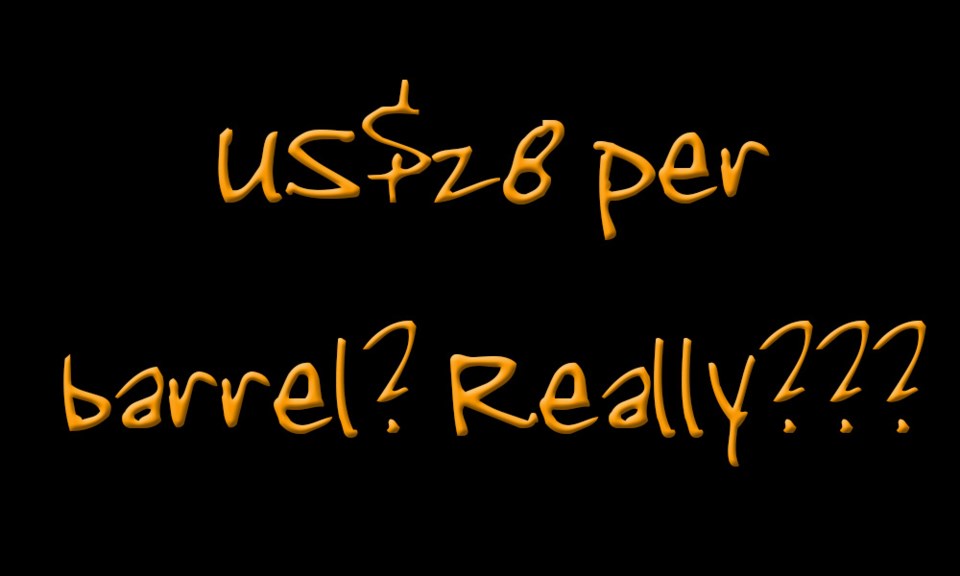Last month our editorial was headlined “Numbers that begin with ‘3.’” The implication then was dealing with a world where oil is priced below $40 per barrel.
Writing this on Jan. 19, those numbers now begin “2.” Oil today is trading in the US$28-$29 range. In mid-January it hit depths not seen since 2003. It may be lower by the time you read this.
Two weeks before, Crescent Point had put out its capital expenditures forecast. Their press release noted, “Including the monetization of its 2017 and 2018 hedges, the company expects to live within cash flow at WTI prices down to US$40/bbl.”
That’s a far cry from $28/bbl. If you follow the rest of their statement, you soon find they intend on squeezing another five to 10 per cent of price concessions out of their capital costs if low oil prices persist. Where vendors will find that additional savings is anyone’s guess. It’s not like they’re going to have much choice.
At the same time, Iran’s sanctions on its oil shipments came off as part of a we-won’t-build-nukes deal on their part. They immediately announced they would be adding shipments of 500,000 bpd, which, by the way, was right around the total oil production of Saskatchewan in December 2014.
Other numbers that involve two include the number of West Coast pipelines in dire trouble. The Trudeau government has effectively kneecapped the Enbridge Northern Gateway project to Kitimat by working to ban tanker traffic along the northern British Columbia coast. Then on Jan. 11, the province of British Columbia announced it was rejecting the Trans Mountain Expansion project by Kinder Morgan, telling the National Energy Board the pipeline didn’t meet their much-ballyhooed five conditions.
It seems that there’s nowhere the industry can catch a break right now.
We, as an industry, know an export pipeline approved today won’t put money in our bank accounts tomorrow. It will be years before any project is completed and has an impact. But at least it would provide some hope.
We have not heard cries for government assistance like other sectors in the past have received. For the past decade or two, it has been rare to see a factory in the automaking sector without federal and provincial dollars. In the past, farmers have been bailed out, as have fishers. But the oil sector?
Something tells us that would be “unpalatable” for those who sip their fair-trade imported coffee lattes from plastic foam cups while driving their SUVs on asphalt-paved streets.
This industry does not want government handouts or involvement. PetroCanada, as a Crown corporation, wasn’t exactly welcome. But we would at least appreciate a chance, especially when it comes to export pipelines. With Keystone XL dead, Northern Gateway likely sunk, and not Trans Mountain Expansion in jeopardy, we’re in a serious bind. It becomes all-or-nothing on Energy East.
We really do need a West Coast export pipeline. Be it Northern Gateway or Trans Mountain Expansion, this is crucial to future of the industry.
We will suffer through the current pain, and will appreciate the rebound. Maybe, as the bumper sticker says, we won’t piss away the next oil boom. But at least give us a chance.



